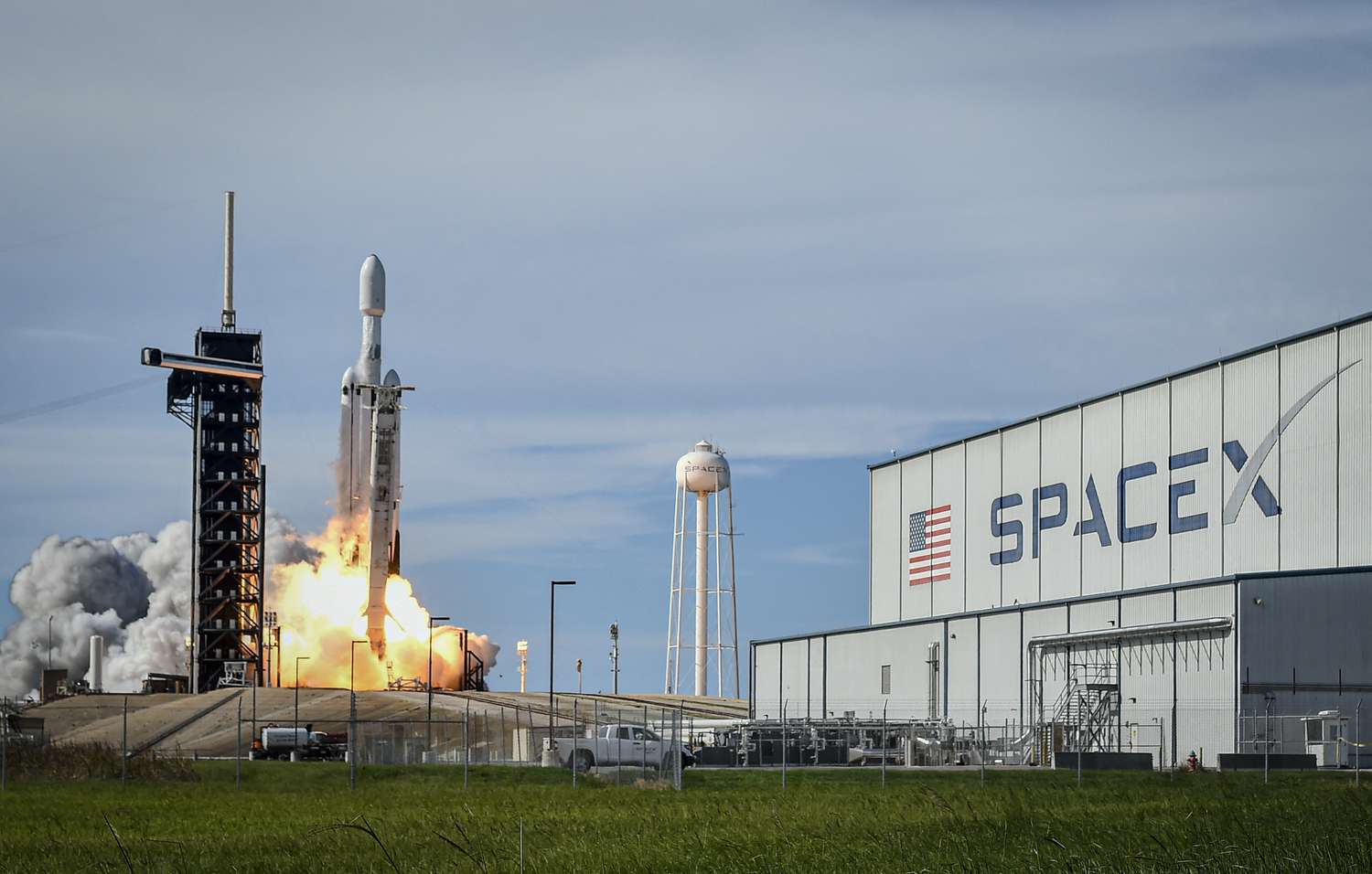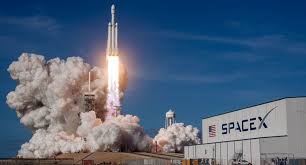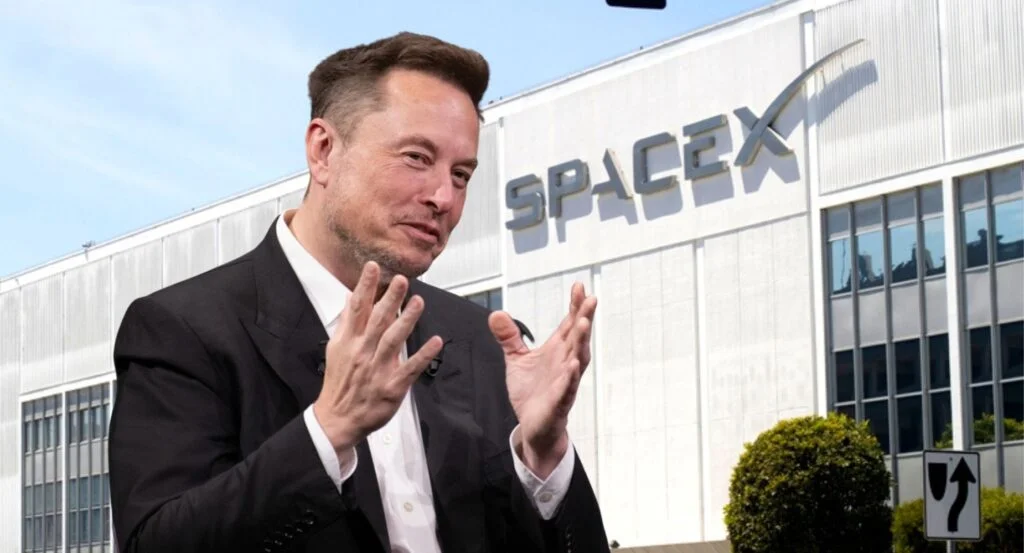Elon Musk’s SpaceX Reaches $350 Billion Valuation

Elon Musk’s SpaceX Reaches $350 Billion Valuation
Introduction: In a stunning display of innovation and growth, Elon Musk’s SpaceX has reached a staggering $350 billion valuation, marking a significant milestone in the company’s ascent to becoming one of the most valuable private space exploration companies in the world. SpaceX, which Musk founded in 2002 with the goal of reducing the cost of space travel and eventually enabling the colonization of Mars, has become a powerhouse in both the space and technology sectors. With its groundbreaking achievements in rocket technology, satellite internet through Starlink, and ambitious plans for interplanetary exploration, SpaceX’s latest valuation underscores its immense influence in reshaping the future of space exploration and commercial spaceflight. In this article, we examine the factors contributing to SpaceX’s remarkable growth, the key milestones that have propelled it to this valuation, and the potential future implications for the space industry.
The Rise of SpaceX: Key Milestones SpaceX’s journey to a $350 billion valuation has been marked by a series of groundbreaking achievements that have set the company apart from traditional aerospace firms. From its humble beginnings, SpaceX has consistently disrupted the space industry with innovative technologies that reduce the cost of launching payloads into space and increase the accessibility of space travel.
One of SpaceX’s most significant accomplishments was the development of the Falcon 9, the world’s first partially reusable orbital-class rocket. The ability to reuse rocket boosters was revolutionary, reducing the cost of space launches by as much as 30%, a major breakthrough in the industry. This innovation set the stage for SpaceX to secure lucrative government contracts, most notably with NASA, which awarded the company contracts for resupply missions to the International Space Station (ISS) and, more recently, crewed missions.
Another major factor in SpaceX’s valuation has been its successful development of the Starship program. Starship, designed to be the first fully reusable spacecraft capable of carrying humans to Mars, has the potential to drastically reduce space travel costs and pave the way for humanity’s expansion into the solar system. While the program is still in its development phase, its long-term potential has excited investors and positioned SpaceX as a key player in the future of interplanetary exploration.
The successful launches of satellites for commercial customers and the ongoing expansion of SpaceX’s Starlink satellite internet service also contributed to the company’s soaring valuation. Starlink, which aims to provide high-speed internet access to underserved areas around the globe, has the potential to generate billions in revenue and create a new revenue stream for SpaceX. With plans to launch thousands of satellites into orbit, Starlink is poised to disrupt the telecommunications industry and further solidify SpaceX’s position as a leader in the space sector.
Innovation and Financial Growth: A significant driver of SpaceX’s $350 billion valuation is its continued innovation and ability to secure high-value contracts. The company’s business model, which includes government contracts, commercial satellite launches, and its growing space tourism efforts, has positioned SpaceX for long-term financial success. This diversified revenue model has enabled the company to maintain profitability while continuing to invest in research and development for future projects.
SpaceX’s ability to secure government contracts, particularly from NASA and the U.S. Department of Defense, has been a major factor in its financial growth. The company’s development of the Dragon spacecraft, which is now used to transport astronauts to and from the ISS, and its involvement in NASA’s Artemis program, which aims to return humans to the Moon by 2025, has solidified its position as a trusted partner in the space sector.
Additionally, SpaceX has made significant strides in the private space sector, with growing interest from commercial customers looking to launch satellites, conduct research, or participate in space exploration missions. The company has signed deals with companies like Iridium Communications and SES, further expanding its reach in the commercial spaceflight market.
The rapid growth of SpaceX’s valuation is also reflective of its ability to execute on ambitious goals. Under Musk’s leadership, SpaceX has not only met but exceeded expectations, delivering on major milestones faster than many industry experts predicted. This track record of success has earned the company confidence from investors and positioned it as a leader in the space industry.
Musk’s Influence on SpaceX’s Success: Elon Musk’s role in SpaceX’s valuation cannot be overstated. As the company’s CEO, Musk has played a pivotal role in shaping the vision and direction of the company, driving it toward ambitious goals like reducing space travel costs, colonizing Mars, and democratizing access to space. Musk’s unique ability to envision and execute on these grand ideas has been a key factor in SpaceX’s rapid growth.
Musk’s personal brand has also been instrumental in the company’s success. Known for his bold and unconventional approach to business, Musk has attracted both media attention and investor interest, helping SpaceX secure funding and gain widespread recognition. His willingness to take risks and challenge the status quo has fueled the company’s innovation and allowed it to compete with traditional aerospace giants like Boeing and Lockheed Martin.
Moreover, Musk’s ability to deliver on high-risk projects has bolstered investor confidence. The successful launches of the Falcon Heavy, the largest operational rocket in the world, and the continued development of the Starship program have shown that Musk’s vision for SpaceX is not only feasible but is already becoming a reality.
SpaceX’s Future and the Implications of Its Valuation: With a valuation of $350 billion, SpaceX is now one of the most valuable private companies in the world. Its growing influence in both the aerospace and telecommunications industries has far-reaching implications for the future of space exploration and technology. As the company continues to develop cutting-edge technologies and expand its business model, SpaceX’s success could lead to new opportunities for collaboration, investment, and innovation in the space industry.
One of the most exciting aspects of SpaceX’s future is its potential to open up space travel to the public. Musk’s goal of making space tourism a reality, with plans to send civilians into orbit and eventually to the Moon and Mars, could create a multi-billion-dollar industry. The development of the Starship spacecraft, which is intended for both cargo and passenger transport, could revolutionize space travel by drastically lowering the cost of interplanetary journeys.
The expansion of SpaceX’s Starlink satellite network could also have significant economic and social impacts. By providing high-speed internet to underserved regions around the world, SpaceX is poised to transform global communications and bridge the digital divide, creating new opportunities for education, business, and connectivity.
Conclusion: Elon Musk’s SpaceX has reached an astounding $350 billion valuation, a testament to the company’s rapid growth and transformative impact on the space industry. With its groundbreaking advancements in rocket technology, satellite communications, and space exploration, SpaceX is leading the way in shaping the future of space travel. As the company continues to innovate and achieve ambitious goals, its valuation is likely to grow, positioning it as a dominant force in both the aerospace and technology sectors. The success of SpaceX underscores Musk’s vision of a sustainable, interplanetary future, and the company’s remarkable journey is just beginning.











